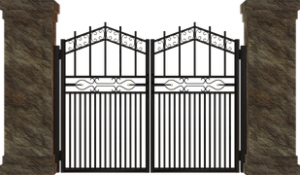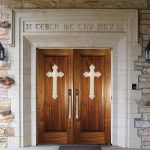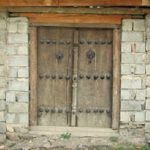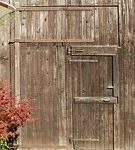First Reading Habakkuk 1:2-3; 2:2-4 Second Reading 2 Timothy 1:6-8,13-14
Gospel Luke 17:5-10
In this Gospel the disciples ask Jesus for an increase of faith. The faith that is being asked for is not to have a better knowledge of our catechism. What is being asked for is a much deeper and stronger trust and confidence that our God is near us – the firm conviction that God will always take care of his own.
Our participation in God’s plans is God’s grace to us—nothing more, nothing less. Even when God works wonders through us, with our mustard seed-sized faith, we must not seek praise. When we are graced enough to cooperate with God, the work we do is nothing more than our obligation as faithful stewards of what God has given us. And yet, our faith enables us to believe that what we have offered in service to God, as his servants, can be made to produce (like that mulberry tree in the midst of the sea) a hundredfold.
Our relationship with God is not about a bargaining agreement; a bartering or a buying and selling contract, about giving to God and getting in return. No, our relationship with God is one of total and unconditional love. The joy and satisfaction is not in what we can do to squeeze favors from God but in what we can give and share of ourselves.
The reason for this, of course, is that no matter what we do we are in God’s debt. The very energies with which we serve God are pure divine gift to us. We are “merely servants.” It’s not a 50/50 deal with God. We can never do more than “our duty.” However much we give to God it is a small repayment for all that has already been showered on us.
We’ve heard many everyday heroes say something of this nature, haven’t we? When they are awarded medals or accolades for a so-called heroic act, many say “I didn’t do anything special. I just did what anyone in the same circumstance would do.” But, would they? Would we – jump into murky waters of an icy cold river, onto subway tracks in the path of an oncoming train, risk being attack by a vicious animal, rush into a burning building? Would we respond to the need of the moment, let the Spirit, whom we sometimes call “adrenaline” kick in and come to the rescue? Or, if we had the opportunity would we consistently perform less noticeable actions like we’ve seen lately in the news: leaving a highly paid chef’s position to serve gourmet meals in a soup kitchen, insuring that 2000 poor families get Christmas gifts, spend our weekend to provide free health and dental care to help make people smile and laugh. We can hope that would not hesitate, and pray our faith would sustain us to respond: “we have done what we were obliged to do.”
Remember the story that goes: There were four people named Everybody, Somebody, Anybody and Nobody. There was an important task to be done and Everybody was sure that Somebody would do it. Anybody could have done it, but Nobody did. Somebody got angry about that, because it was Everybody’s job. Everybody thought Anybody could do it, but Nobody realized that Everybody wouldn’t do it. It ended up that Everybody blamed Somebody when Nobody did what Anybody could have done. Which one are you?
Jesus’ story today indicates that lack of faith is not really the issue when we fail to respond to the needs of others. Faith is not measured by its quantity, but simply by its presence. A mustard seed sized faith will accomplish impossible things. The real need, Jesus says is for more obedience and humility. We should view ourselves as God’s slaves who owe Him simple and unquestioning obedience. And, when we have done what He requires, we should not get puffed up with pride in our great obedience, but should simply say, “We are unworthy slaves; we have done only that which we ought to have done.” As Benedict says in his chapter on obedience: If you notice something good in yourself, give credit to God, not to yourself.” Keep before you Benedict’s admonishment: “Do not aspire to be called holy before you really are, but first be holy that you may more truly be called so.”
It reassuring to know we can rely on God to uphold his promises. Recall the words of Psalm 89 that we prayed earlier this week: “God promises: I will never take back my love; my faithfulness will not fail. I will never break my covenant or go back on my promise.” Or take as your mantra this week the words of Jeremiah the prophet: “This I recall to my mind, therefore I have hope. The Lord’s loving kindnesses indeed never cease, for His compassions never fail. They are new every morning; great is God’s faithfulness.” And perhaps spend some time contemplating whether, when there is a task to be done, you are a Somebody, an Anybody, a Nobody or one among Everybody….













